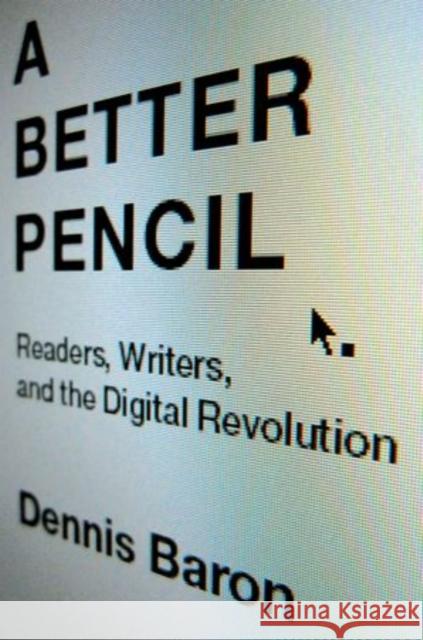A Better Pencil: Readers, Writers, and the Digital Revolution » książka
topmenu
A Better Pencil: Readers, Writers, and the Digital Revolution
ISBN-13: 9780199914005 / Angielski / Miękka / 2012 / 280 str.
Computers, now the writer's tool of choice, are still blamed by skeptics for a variety of ills, from speeding writing up to the point of recklessness, to complicating or trivializing the writing process, to destroying the English language itself.
A Better Pencil puts our complex, still-evolving hate-love relationship with computers and the internet into perspective, describing how the digital revolution influences our reading and writing practices, and how the latest technologies differ from what came before. The book explores our use of computers as writing tools in light of the history of communication technology, a history of how we love, fear, and actually use our writing technologies--not just computers, but also typewriters, pencils, and clay tablets. Dennis Baron shows that virtually all writing implements--and even writing itself--were greeted at first with anxiety and outrage: the printing press disrupted the "almost spiritual connection" between the writer and the page; the typewriter was "impersonal and noisy" and would "destroy the art of handwriting." Both pencils and computers were created for tasks that had nothing to do with writing. Pencils, crafted by woodworkers for marking up their boards, were quickly repurposed by writers and artists. The computer crunched numbers, not words, until writers saw it as the next writing machine. Baron also explores the new genres that the computer has launched: email, the instant message, the web page, the blog, social-networking pages like MySpace and Facebook, and communally-generated texts like Wikipedia and the Urban Dictionary, not to mention YouTube. Here then is a fascinating history of our tangled dealings with a wide range of writing instruments, from ancient papyrus to the modern laptop. With dozens of illustrations and many colorful anecdotes, the book will enthrall anyone interested in language, literacy, or writing.










